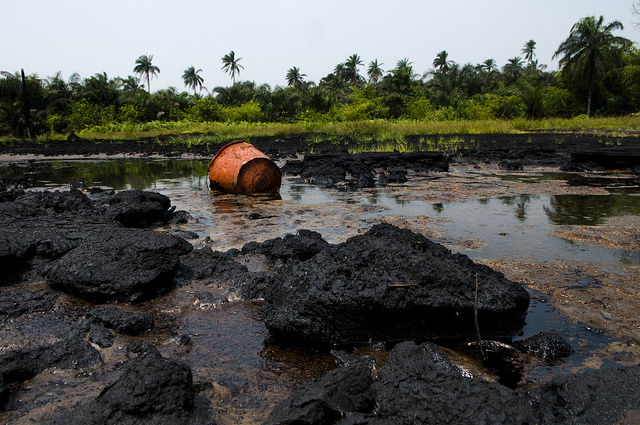A new research study says that babies born in Nigeria are much more likely to die in their first few weeks of life if their mothers live close to the site of an oil spill. The scientists, who studied data on infant mortality and oil spills in Nigeria’s Niger Delta region, have published very scaring results of their findings. Scholars have described the result as shocking.
It is estimated that over two hundred thousand barrels of crude oil are spilled into the Niger Delta every year. The environmental effects are clear to see – waterways running thick with the choking, black liquid; suffocated wildlife; dying mangroves. The effects on the people living in the region have come home to roost.
The study by scientists at Switzerland University, Saint Gallen, should be made available to both federal and state governments: babies born in the Niger Delta are twice as likely to die in the first month of life if their mothers were living close to an oil spill before they became pregnant. Dr. Roland Hodler the lead researcher, painted the matter in clear colours, “We looked at the birth histories of more than two thousand five hundred Nigerian mothers,” Dr. Holder said. “And we compared siblings, some conceived before and some conceived after a nearby oil spill”.
The researchers compared geographical data on 6,600 recent oil spills, with results from the 2013 National Demographic and Health Survey. Their results show that even spills that happened five years before conception doubled the chances of babies dying after birth. However, spills that happened during pregnancy appeared to have little effect.
Dr. Holder continued, “We think the main reason is that some of the negative health effects are just building up over time. So, if you think about these negative health effects, these are due to skin contact with crude oil, or to drinking contaminated water or eating contaminated fish or crops. And also inhaling smoke from fires.”
It used to be fashionable to believe that unborn and newborn infants are more vulnerable because they have not built up natural defenses. The study has not only debunked that notion but has also suggested that the effects of oil spills will be felt long into the future.
In 2015, the Anglo-Dutch oil giant, Shell, agreed to share the costs of the clean-up of Ogoniland, the heart of the oil spill zone in Niger Delta – an operation that the United Nations says will likely take 30 years. Critics say only a fraction of the money has been paid. Shell blames oil thieves for causing many of the spills.
The Nigerian government has not yet responded to requests for comments on the new study.

















